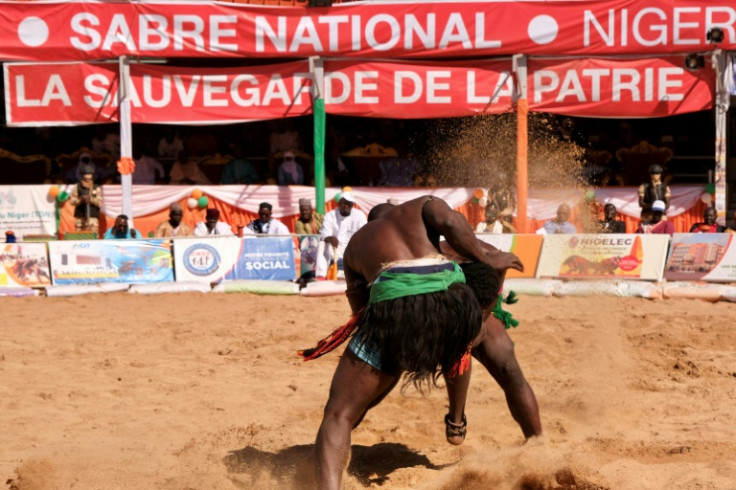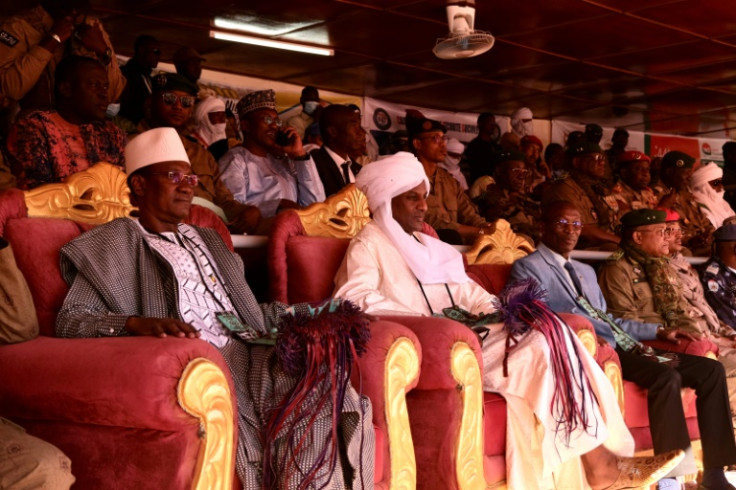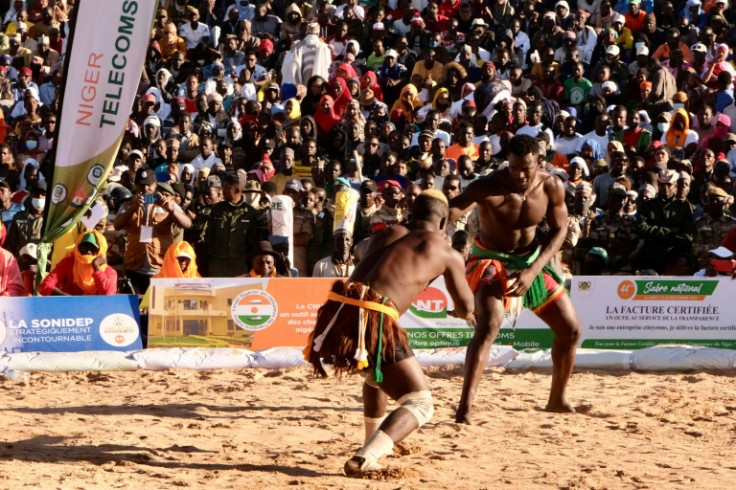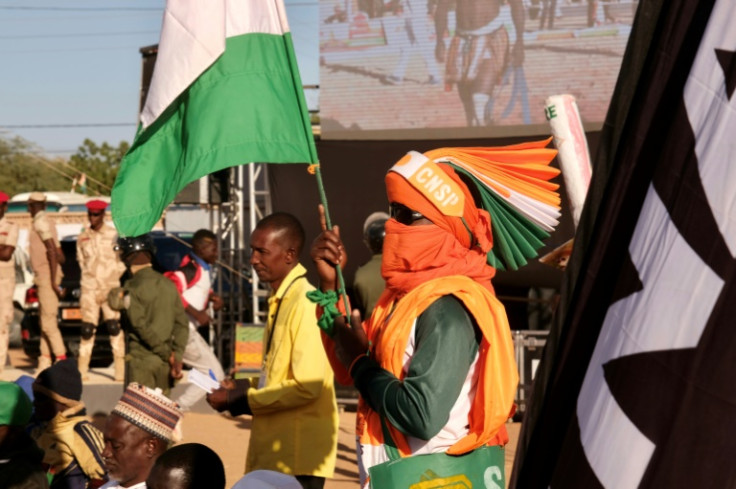Niger Celebrates Unity In The Wrestling Arena

The winner falls to his knees, arms raised triumphantly. After just eight minutes, his opponent's knee and elbow have touched the sand, handing "Issaka Issaka" an historic win in Niger's king of sports.
The annual wrestling tournament in the northern city of Agadez enthrals the vast West African nation.
It's more than just a sporting event.
The prime minister is joined by his counterparts from fellow military-led neighbors Mali and Burkina Faso to watch the competition.
Now in its 44th year, the National Saber event takes place this time under the banner "safeguarding the homeland".
It comes at the close of a turbulent year for Niger which saw military officers seize power on July 26.
A few days later, the Economic Community of West African States (ECOWAS) threatened an armed intervention to restore democratically elected president Mohamed Bazoum.
The regional bloc also imposed tough sanctions against Niger, which has one of the world's poorest populations despite having major resources.
But for 10 days, those troubles are forgotten as all eyes are on the skill and maneuvers of the wrestlers.
"It's true we're facing a difficult economic situation but the Nigerien people are resilient," regional councilor Alhassane Youssoufa, who is among the spectators, said.
Around the giant screen showing the matches, on posters and billboards, the portraits of the leaders of Niger, Burkina and Mali are an indicator of a defense pact struck in September.
Arenas are decked out in the colors of the three Sahel states, which are all fighting a jihadist insurgency that erupted in northern Mali in 2012.
Warm messages of support for Niger's ruling National Council for the Safeguard of the Homeland (CNSP) and its leader General Abdourahamane Tiani play constantly over the speakers.
"Everyone is tuned in to the wrestling, in offices, taxis," said sports journalist Issoufou Kodo, who is covering the event live for national radio and in Hausa, one of Niger's national languages.
"It's the perfect time to run all possible communications," he added.
With millions of viewers, it's also a boon for sponsors.
Businesses and patrons stump up the prizes worth tens of millions of CFA francs (up to $16,500) which are also bestowed for best dance, costume and even best ability to sing one's own praises.
The ECOWAS prize this year is now known as the Alliance of Sahel States prize, the announcement says.
"Street vendors, traders, everyone benefits," Lawel Hamet, a representative of the regional energy company, which is among the sponsors, said.
Issaka Issaka -- whose real name is Kadri Abdou -- has won his third consecutive title at the Saber and the sixth of his career.
His would-be opponent Aibo Hassan, who was ruled out of the tournament by injury, is propped up on crutches watching.
In a sport where fair play and solidarity are de rigueur, when Issaka Issaka won the final, he crossed over and hugged him out of respect.
"Traditional wrestling... is something we inherited from our ancestors, so it's normal for people to feel attached to this traditional sport, which unites Nigeriens," Hassan said.
"Thanks to tournaments, we all know each other. We build strong relationships. We are one family," he enthused.
"It's the cement of unity."
Social cohesion is one of the watchwords at the event in Agadez, capital of a region shaken by several Tuareg rebellions in the 1990s and 2000s, and known for backing the former elected government.
"Djerma, Hausa, Tuaregs -- this wrestling brings us together. It's a source of pride for me to come here," artist and actor Omar Mahamane, who has come from the capital Niamey, said.
To the beat of traditional sogolo music, wrestlers from all teams perform dances together in a cultural demonstration that finds particular favour with spectators.
"What I love about wrestling is the musicians, the tradition, the sogolo. Everyone loves to see their culture," spectator Mohamed Lamine said.
Once practised by villagers to mark the end of the harvest, traditional wrestling became a professional sport in the 1970s under the military regime of Seyni Kountche.
He wanted to promote a "typically Nigerien" sport that "has nothing to do with the West", said the sports journalist Kodo.
Since then, "wrestling has become so popular that no regime has ever allowed itself to neglect it".




© Copyright AFP 2025. All rights reserved.





















